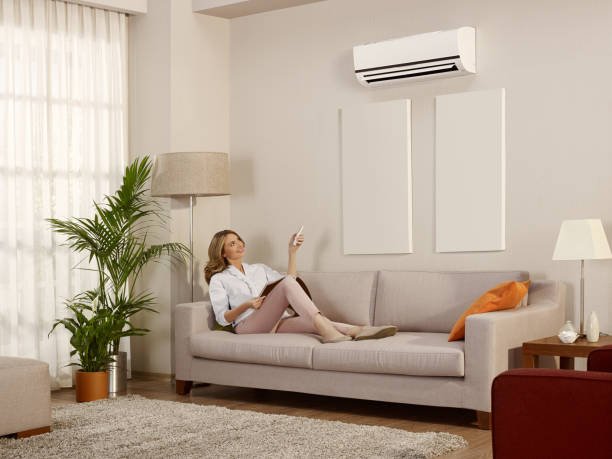Creating a comfortable work environment in your personal office space is vital for productivity and well-being. Among the numerous considerations in designing such a space, choosing the right air conditioner is pivotal. The selection process involves a delicate balance between functionality, size, and energy efficiency to ensure optimal cooling without compromising environmental impact or utility bills.
Understanding Functionality Requirements
Functionality stands as the cornerstone of an air conditioner’s effectiveness in any personal office setup. The choice between various types – window units, portable ACs, or split systems – depends largely on the layout, space availability, and specific requirements of your office.
Window Units: These are suitable for smaller offices with windows designed to accommodate them. They’re relatively cost-effective and easy to install, making them a convenient choice for moderate cooling needs.
Portable ACs: Offering flexibility, portable units can be moved from one area to another. They’re ideal for offices lacking window space or for those who might need the cooling in multiple locations within the office.
Split Systems: These consist of an indoor unit and an outdoor compressor. They offer quiet operation and efficient cooling for larger offices but might require professional installation.
Assessing the layout and dimensions of your office space is crucial in determining which type of air conditioner aligns best with your needs.
Size Matters: Matching Capacity to Office Space
Selecting the right size air conditioner goes beyond physical dimensions. The cooling capacity, measured in BTUs (British Thermal Units), should correspond to the square footage of the office space. An undersized unit will struggle to cool the area efficiently, while an oversized one might lead to rapid cycling, causing temperature inconsistencies and higher energy bills.
Calculating the required BTUs involves considering various factors:
Room Size: Measure the length and width of the office space to determine square footage.
Insulation: Assess the quality of insulation, as well as the presence of windows and doors that could affect temperature control.
Heat-Generating Equipment: Account for heat-producing devices like computers, printers, or lighting, which impact the overall heat load of the room.
Using an online calculator or consulting with an HVAC professional can assist in determining the appropriate BTU rating to adequately cool your office space without excess capacity.
Prioritizing Energy Efficiency
In the current age of environmental consciousness, energy efficiency has become a paramount consideration in selecting any household appliance, including air conditioners. Opting for an energy-efficient model not only reduces your carbon footprint but also lowers electricity bills over time.
Look for air conditioners with the ENERGY STAR label, indicating compliance with stringent energy efficiency guidelines. Additionally, consider the following aspects:
EER (Energy Efficiency Ratio): This ratio measures the cooling capacity of the unit concerning its energy consumption. Higher EER values signify greater energy efficiency.
Inverter Technology: AC units equipped with inverter technology regulate compressor speed based on cooling needs, ensuring consistent temperatures and energy savings.
Programmable Thermostats: These allow for precise temperature control, enabling you to set cooling schedules according to office hours, minimizing energy waste.
Maintenance: Regular maintenance, such as cleaning or replacing filters, ensures optimal performance and energy efficiency throughout the AC’s lifespan.
Selecting the right air conditioner for your personal office is a multi-faceted decision that involves understanding the space, balancing functionality, size, and prioritizing energy efficiency. Investing time in assessing your office’s specific needs, considering the available options, and opting for an environmentally friendly and energy-efficient model will ensure a comfortable and productive workspace while minimizing the impact on both the environment and your utility bills. Prioritizing these aspects will undoubtedly result in a well-informed decision and a more conducive work environment within your personal office space.
Don’t delay your air conditioner repair. Do not forget that repairing is much easier and cheaper immediately after a breakdown occurs. If your air conditioner is working, but making strange noises or not cooling the room enough, it means it’s time to contact the technicians.
Don’t wait until the air conditioner is completely out of order. In the case of untimely repairs, there is a very high possibility that a long complex repair will be required. Even a few days without air conditioning in the summer heat in San Diego County, CA will bring great discomfort to the whole family. But by calling the masters from SDAC Heating & Air Conditioning you can avoid this problem.
Contact us
